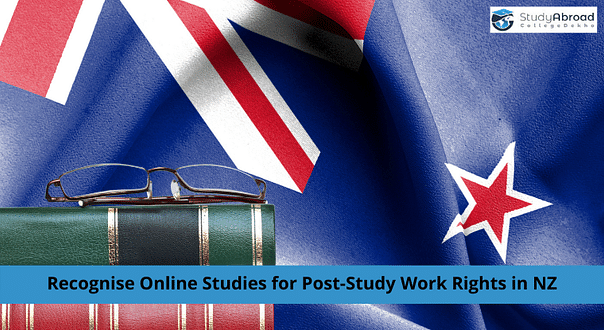With international education taking a major hit during the pandemic across the globe, an organisation that represents private tertiary providers in New Zealand have suggested certain changes to sustain the international education sector in the country, like commencing the issuing of student visas, etc.
As per pre-election manifesto of the Quality Tertiary Institutions, immediate government measures need to be taken to ensure that the international education sector of New Zealand is sturdy and operational. Moreover, the changes will also enable and motivate international students to take admission to the numerous New Zealand Universities and Colleges.
Sources claim that New Zealands international education sector is worth NZ$5 billion to the overall economy. Although, Grant Robertson, the NZ Finance Minister, stated that the return of international students to the country seems highly unlikely.
As per QTI, international students should also be eligible for the post-study work visa even if they began their studies online and offshore. Currently, international students can apply for a 3-year work visa if they have completed a 60-week certificate or diploma programme or have finished at least 30 weeks of a degree or higher qualification. However, this would only be applicable if the student studied the same on-shore.
The Executive Director of QTI, Tommy Honey, stated the provision to allow recruiters to enrol and train international students remote must be offered. They added that such a provision must be made with a condition that the students will continue their education in New Zealand, once the borders are re-opened.
Also Read: New Zealand Launches Micro-Course to Support International Students
The QTI executive director pointed out that a few of the competitor countries have implemented policies that allow students to continue their education remote without hampering their post-study work visas. Without such policies, New Zealand risks missing out, states Honey.
In a further statement, QTI is not asking to re-open to border and risk the spread of the virus but instead take certain common-sense steps that can assist in the recovery of the international education sector, without having to risk the safety of each and every individual in the country.
Also Read: Australia must offer a Solid ROI to International Students: AAERI
Honey claims that the Universities, polytechnics and private institution greatly affected by the closure of the borders, the QTI has proposed seven key cross-sector policies to combat the economical effects of COVID-19 in the international education sector, which have been listed below:
-
Immediate commencement of the issuance of student visas should be undertaken by Immigration New Zealand.
-
Institutions and education providers must be allowed to deliver classes online to international students in 2021 as well. to do so in 2021.
-
Students beginning their classes in 2021 should be qualified for the usual post-study work-visa, even if they are forced to complete the first-year or part-year of their study in their home countries in 2021, which should be restricted to a limit of 50% of their study-load.
-
The post-study work-right in Auckland must be adapted and adjusted to that of the rest of the country.
-
Adjustments to the student pathways visas criteria must be broadened to include quality provider, counting the English language providers as well. This should be in order to allow them to participate in pathways programmes that lead to a diploma, degree-level or higher education study.
Also Read: New Zealand Becomes the most Desirable Study Abroad Destination: Survey
Tommy Honey further added that the Tertiary education sector has taken a heavy blow since COVID-19 practically stopped the world. However, steps need to be taken to meet the post-COVID training and retraining requirements.
In July, the New Zealand government announced a NZ$5.6 million investment with the aim of stabilising the sector and keep it functioning properly for when the borders reopen.























